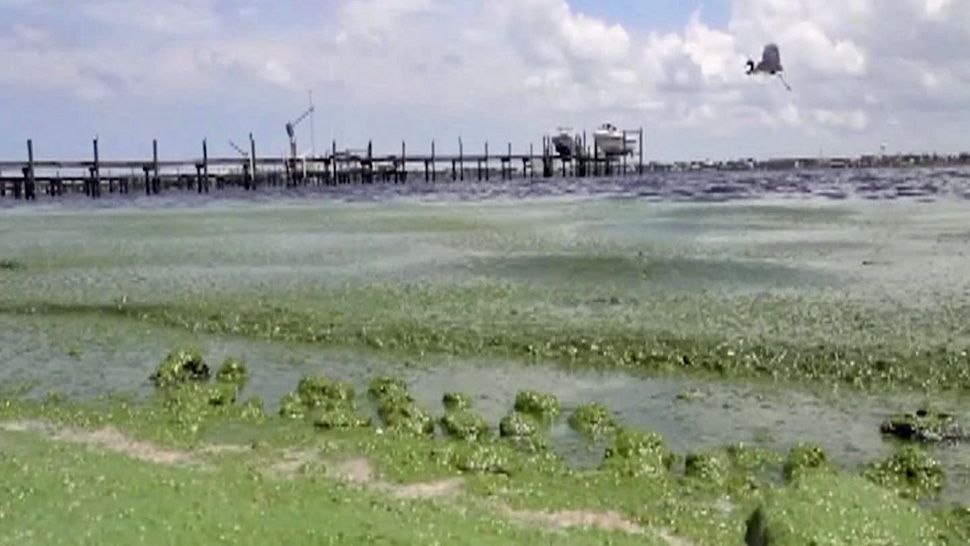TALLAHASSEE, Fla. — As toxic algae blooms continue to wreak summertime havoc along Florida's rivers and estuaries, the state's top politicians are continuing to point fingers at each other for not acting to forestall the crisis.
- Gov. Scott, Sen. Nelson continue to trade barbs, blame
- Environmentalists hailing recent action to halt blooms
- Legislature has approved plan for new reservoir to store polluted water
After a meeting of the Florida Cabinet Tuesday, Gov. Rick Scott singled out Sen. Bill Nelson - a three-term Democrat Scott is campaigning to unseat - for failing to secure federal funding years ago to strengthen the Herbert Hoover Dike. The dike has been used to keep polluted water in Lake Okeechobee from flowing into the rivers and triggering the blooms. The lake's rising water level, however, has forced the Army Corps of Engineers to undertake controlled discharges in order to relieve pressure on the dike.
"It's clear he's done absolutely nothing to deal with stopping the releases from the dike," Scott told reporters. "If the dike had been done earlier, we wouldn't be seeing these releases and we wouldn't be seeing the algae."
But governor's critics say his characterization of the problem glosses over his own administration's role in dismantling Florida's growth management agency, the former Department of Community Affairs. The agency had served as a check on unfettered development, which environmentalists blame for much of the dirty water being sent south to Lake Okeechobee.
Five years after DCA's demise, in 2016, the algae blooms began multiplying in startling numbers, triggered by the summer heat.
"Here we go again: more nutrient-laden water flowing into these waterways," Nelson bemoaned on the Senate floor when the blooms returned again this summer.
Whatever the causes, environmentalists are now hailing actions being taken at the state and federal levels to address the blooms. Scott and Nelson are both taking credit for securing more federal funding to strengthen the dike, and the Florida Legislature has approved a sweeping plan to build a reservoir that can store polluted water south of Lake Okeechobee, preventing the discharges.
"Just like roads, just like fleets, we all know that if we don't keep up the infrastructure that we depend upon, it can't function in the ways that we need it to," Julie Wraithmell of Audubon Florida told the Cabinet Tuesday.



